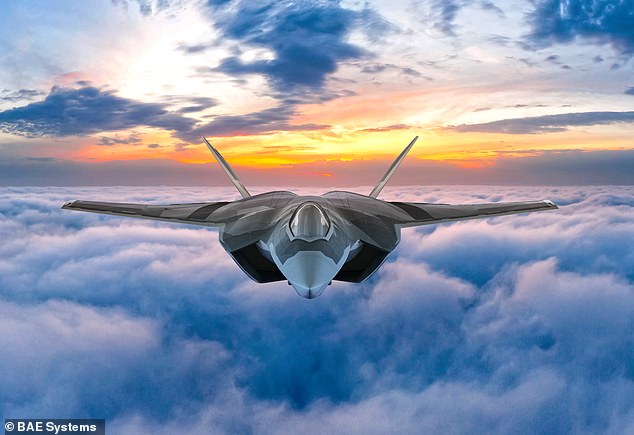Table of Contents
Keir Starmer’s drive to “reset” relations with the European Union could open the door to a collaboration between the UK-led Tempest fighter jet project and a rival project on the continent, according to senior executives at Airbus, the European aerospace giant.
The Prime Minister is keen to secure better trading terms with the EU bloc. Mike Schoellhorn, head of defence and space at Airbus, said “early encouraging statements” from the new Labour government suggested talks could go ahead.
Collaboration between the two projects would not only allow them to share innovative technology beyond new aircraft (for example, with drones), but could also save Starmer and his team money. There has been speculation about whether the government can afford the multi-billion pound Tempest project amid mounting budget pressures.
Tempest is part of the Global Combat Air Programme (GCAP), a partnership between Britain, Italy and Japan.
It is led by Britain’s BAE Systems and the consortium includes Rolls-Royce, Italy’s Leonardo and Japan’s Mitsubishi.
High-flying: Tempest is part of the Global Combat Air Program, a partnership between Britain, Italy and Japan
The UK has invested £2bn in funding Tempest and says it could contribute at least £25bn to the economy over 30 years.
Some estimates put the economic contribution at £37 billion.
Airbus, which is based in France but also has significant operations in the UK, is part of a parallel French, German and Spanish project called the Future Combat Air System (FCAS).
Jean-Brice Dumont, head of Air Power at Airbus, told The Mail on Sunday: “If we look back a bit, we appreciate that Tempest was launched after Brexit.”
However, the new government, he said, “seems much more pro-European, which offers the opportunity to define projects together.”
Merging the two programs could mean that while each would still build its own fighter jet, the two sides could share some of the broader technological elements, such as weapons and the so-called “system of systems” that links them all.
This could be tempting for the new Labour government, desperate to save money.
Schoellhorn said: “I’m hearing very encouraging statements from the new British government in terms of re-engaging with the continent, which could enable discussions.”
Both projects are intended to replace the Eurofighter Typhoon, developed by the United Kingdom, Germany, Spain and Italy and launched in 2003, and there has long been talk that the two sides could join forces in some way.
Schoellhorn’s comments suggested that prospect had been encouraged by the election of a Labour government.
However, such a move could carry political risks as it could mean Japan would have to be disengaged from the project and Saudi Arabia’s proposed involvement in Tempest would likely be scrapped, senior industry sources said.
But Dumont said there was no need to “contradict” the current organization of the two projects.
“Does it strengthen us to work together? Yes, I think so,” he said.
This comes after initial discussions on an Anglo-French programme collapsed in the wake of Brexit.
“Tempest was a necessary project for the UK after Brexit,” Dumont said, adding that both programmes contained “very good ideas, very good technologies, very good projects.”
He said the question was how to bring the projects as close as possible while allowing the countries involved to protect the “sovereignty of their know-how.”
‘One of the key messages we have given to the British Government is: ‘the future starts today’.
Last week at the Farnborough Airshow, one of the aerospace industry’s leading gatherings, companies involved in GCAP also expressed openness to the idea of collaboration.
Herman Claesen, BAE’s project manager, said: “There are always opportunities. We designed the core platform (the fighter) but there is also the possibility of working with others on the system of systems.”
The future of Tempest – along with other military projects – has become the subject of fresh speculation after the prime minister launched a strategic defence review this month, led by former defence secretary Lord Robertson. Reports have suggested the jet programme was at risk of being scrapped.
BAE responded to the reports by saying that Tempest would “enable the UK to retain control over its own security, support important international relationships and confront future threats, while contributing to economic growth and prosperity.”
He said the programme was already generating more than 3,500 jobs across the country.
Speaking at Farnborough, Starmer stopped short of giving any assurances about Tempest’s future, saying it was “important” but that “of course a review was underway”.
BAE chief executive Charles Woodburn told the Hampshire airshow: “For us, it is the future of UK military air capability and we believe there is an incredibly strong case for it.”
DIY INVESTMENT PLATFORMS

AJ Bell

AJ Bell
Easy investment and ready-to-use portfolios

Hargreaves Lansdown

Hargreaves Lansdown
Free investment ideas and fund trading

interactive investor

interactive investor
Flat rate investing from £4.99 per month

Saxo

Saxo
Get £200 back in trading commissions

Trade 212

Trade 212
Free treatment and no commissions per account
Affiliate links: If you purchase a product This is Money may earn a commission. These offers are chosen by our editorial team as we believe they are worth highlighting. This does not affect our editorial independence.
Some links in this article may be affiliate links. If you click on them we may earn a small commission. This helps us fund This Is Money and keep it free to use. We do not write articles to promote products. We do not allow any commercial relationships to affect our editorial independence.

